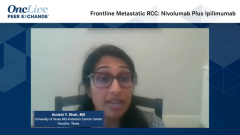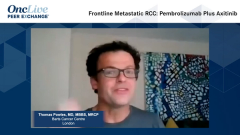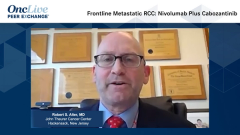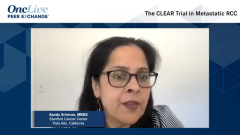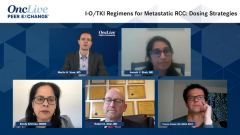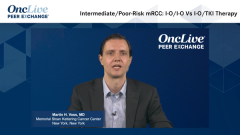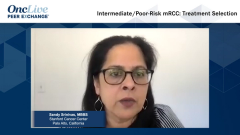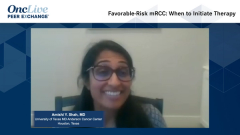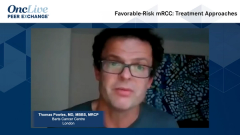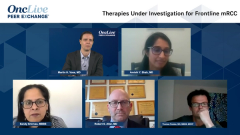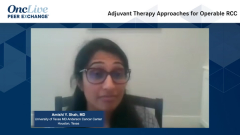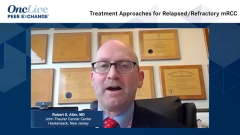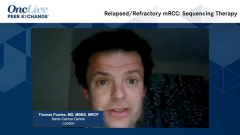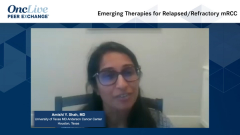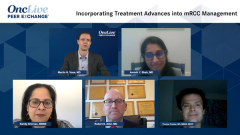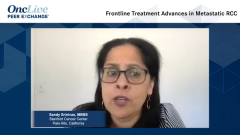
Frontline Treatment Advances in Metastatic RCC
Dr. Sandy Srinivas comments on treatment approaches for frontline metastatic renal cell carcinoma based on the emergence of novel combination regimens that introduce immunotherapy.
Episodes in this series

Martin H. Voss, MD: Hello, and welcome to this OncLive® Peer Exchange® titled “Evolving Practice Patterns for Clear Cell Renal Cell Carcinoma.” My name is Martin Voss. I’m a medical oncologist at Memorial Sloan Kettering Cancer Center. Joining me today in this discussion are my colleagues. I’m going to ask them to introduce themselves.
Thomas Powles, MD, MBBS, MRCP: My name’s Tom Powles. I’m a cancer doctor from London. I work at Barts Cancer Centre.
Amishi Y. Shah, MD: Hi, my name is Amishi Shah. I’m at The University of Texas MD Anderson Cancer Center.
Sandy Srinivas, MB, BS: Hi, my name is Sandy Srinivas. I’m a GU [genitourinary] medical oncologist at Stanford Cancer Center.
Robert S. Alter, MD: Hi, I’m Robert Alter, a GU medical oncologist at the John Theurer Cancer Center in Hackensack, New Jersey.
Martin H. Voss, MD: Today, we’re going to discuss how recent clinical trials and new FDA [Food and Drug Administration] approvals are shaping the way we treat metastatic kidney cancer. We will include key topics discussed at the recent 2021 ASCO [American Society of Clinical Oncology] Annual Meeting and the potential impact of such new data on our clinical practice. We’ll get started on our first topic: frontline therapy of metastatic clear cell kidney cancer. I’m going to kick us off by asking Sandy some questions.
Sandy, could you give us an overview of recent changes to the frontline paradigm and how the new immuno-oncology–based combination regimens that have come into our practice have reshaped our practice, including the recommendations from the NCCN [National Comprehensive Cancer Network] expert panel?
Sandy Srinivas, MB, BS: Thank you, Martin. It’s a pleasure to be here. A lot has changed in frontline in the last many years. We have used the IMDC [International Metastatic RCC Database Consortium] risk classification to bunch patients into favorable-, intermediate-, and poor-risk categories. Today for frontline therapy, we have 3 IO [immuno-oncology]-TKI [tyrosine kinase inhibitor]–based combinations for different risk groups, and we have the ipilimumab/nivolumab combination. The dual IO for patients with intermediate and poor risk have all made it into the NCCN Guidelines for first-line therapy. We also have TKI monotherapy. It’s becoming less commonly used, but we certainly have our old friends, pazopanib and sunitinib as monotherapy for favorable-risk and cabozantinib as a monotherapy for poor-risk.
I wanted to briefly touch on how our use for risk classification has changed in this last decade. When we had targeted drugs with TKIs and mTORs [mechanistic target of rapamycin], we used this IMDC risk classification, but mostly for prognosis and not really in selecting therapy. Though, I must say that temsirolimus was the first drug that was approved for poor-risk. Many of us, despite having that approval, rarely use TKIs for all patients, whether they were poor-risk or good-risk. The introduction of immunotherapy with CheckMate 214 was the first trial that really changed our practice with integrating risk assessment into treatment groups.
Transcript Edited for Clarity


